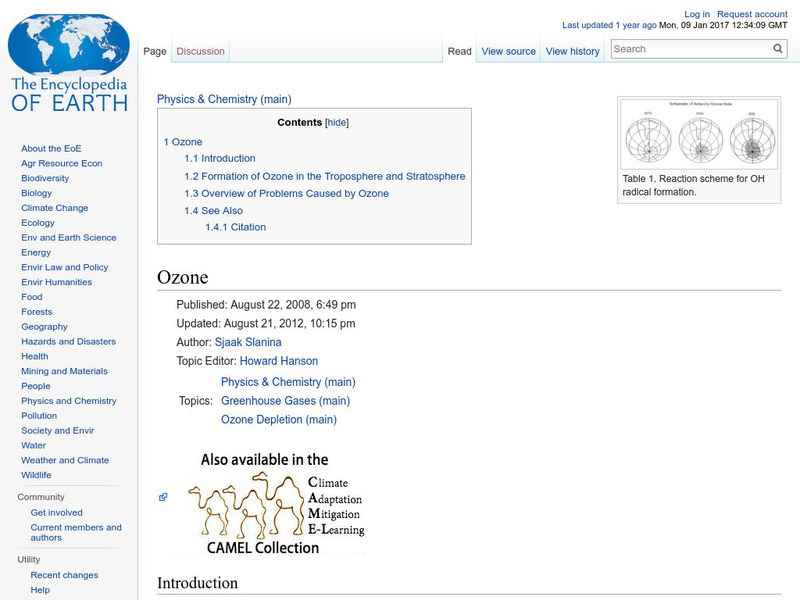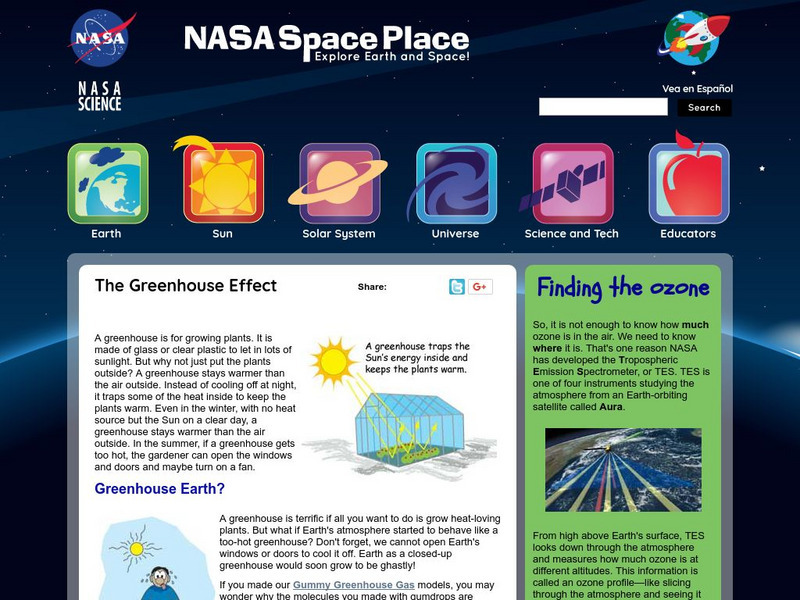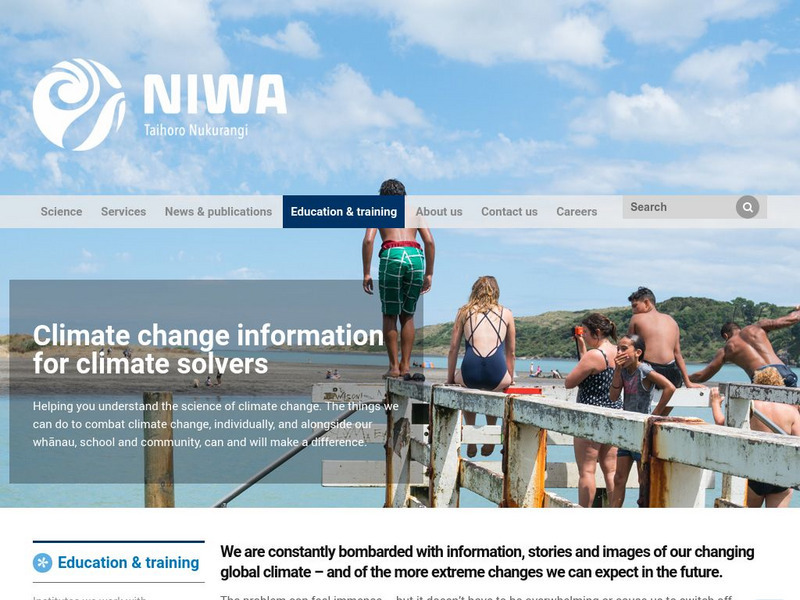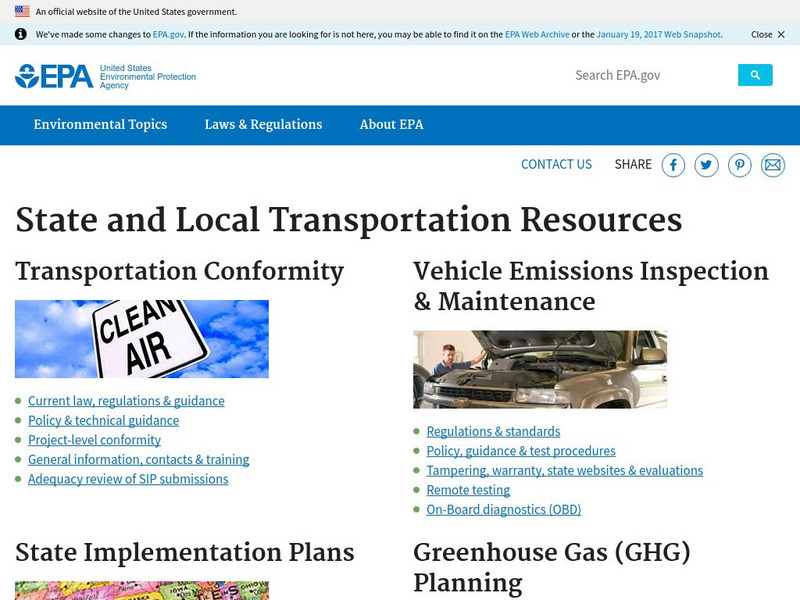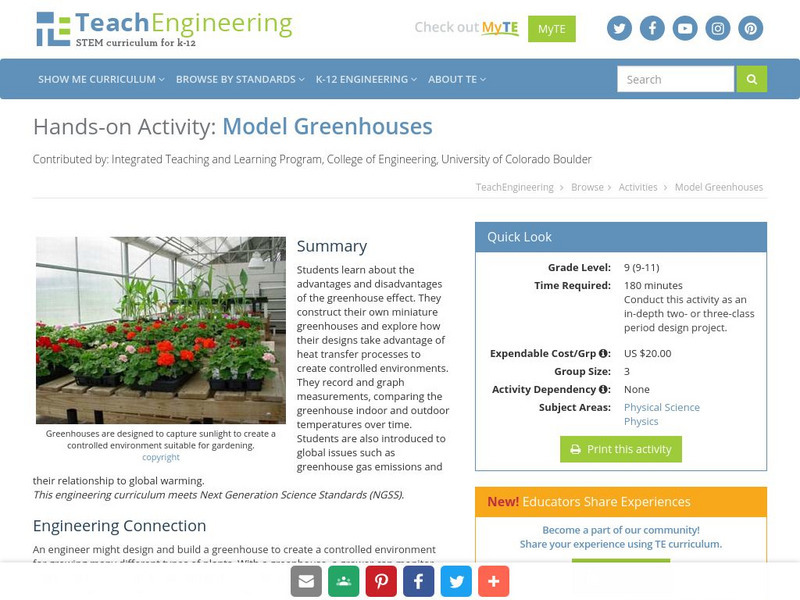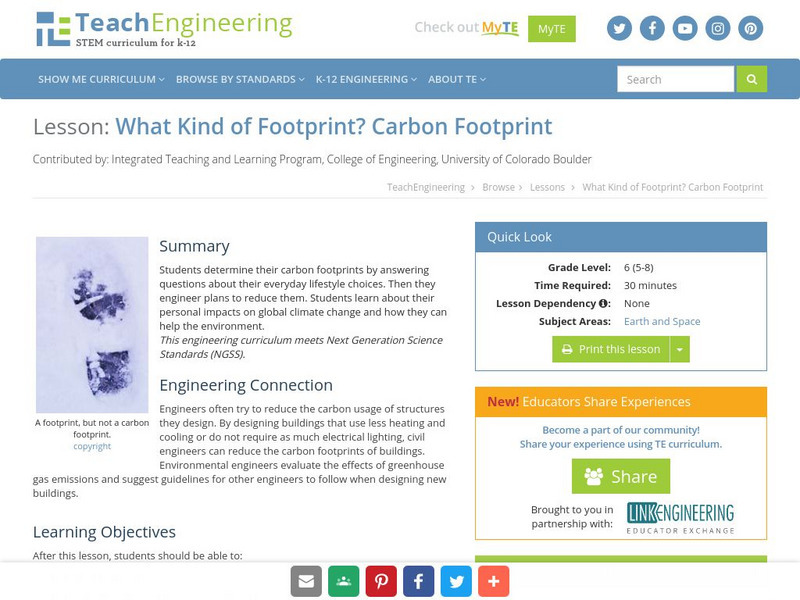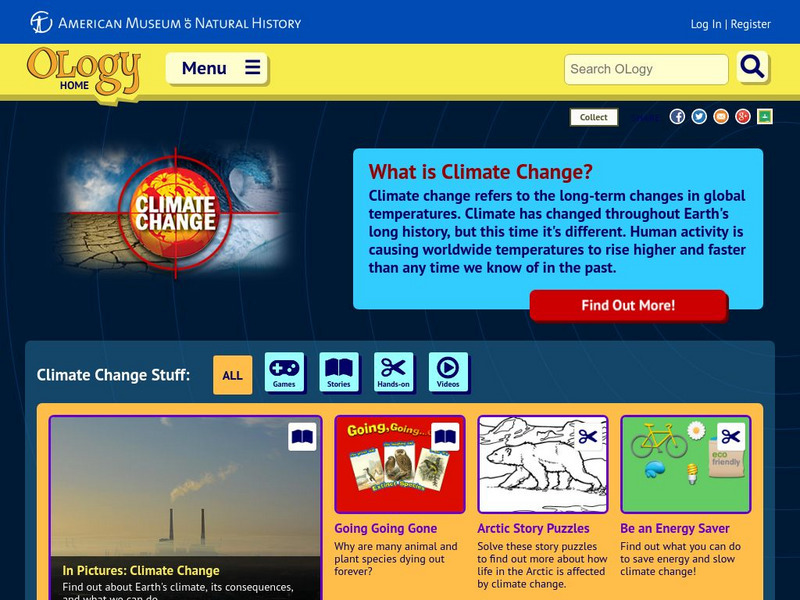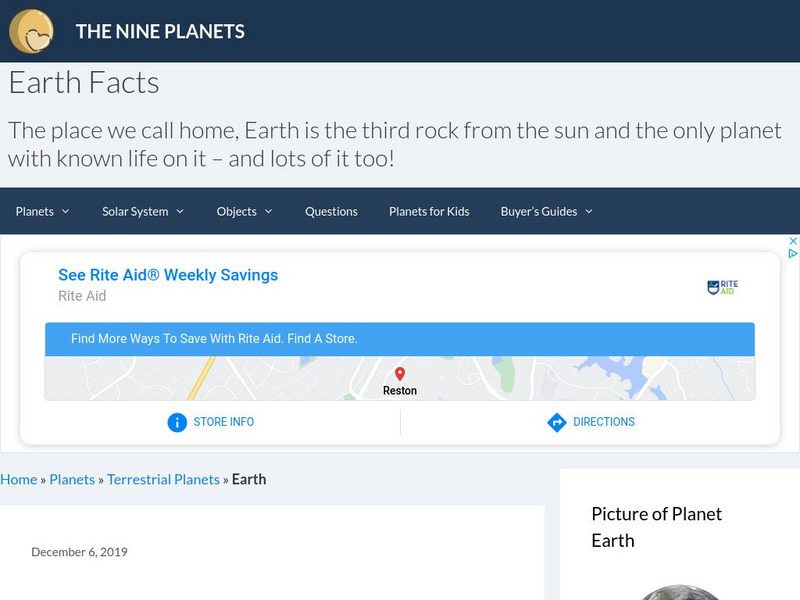US Geological Survey
U.s. Geological Survey: Greenhouse Gases [Pdf]
Lesson plan in which students observe and contrast thermal properties of three major greenhouse gases. Using simple, readily available materials, students collect temperature change over time for dry air, water-saturated air, carbon...
Encyclopedia of Earth
Encyclopedia of Earth: Physics & Chemistry: Ozone
Article explaining what ozone is, how it forms in the atmosphere, and the environmental problems it creates. (Published: August 22, 2008)
Other
Koshland Science Museum: Earth Lab: Degrees of Change
This resource provides information on all of the aspects of global warming, climate change, and the future of the earth.
Georgia Department of Education
Ga Virtual Learning: Our Solar System
This interactive tutorial will take students on a tour of our solar system. Students begin near the Sun with the really hot planets of Mercury and Venus. They will learn about Mars, probably the first planet that humans will visit. Next...
NASA
Nasa: The Space Place: Life in a Greenhouse
Use this website to discover how the Earth acts as a greenhouse due to the production of greenhouse gases. Find out what ozone it, where it's found, and even view a video showing the different concentrations of ozone in the atmosphere.
OpenStax
Open Stax: College Physics: Radiation
In this section of a college textbook, the topic of radiation is explored. Understand how the process of radiation transfers heat. Also learn how to calculate the rate of heat transfer by using the Stefan-Boltzmann law of radiation....
Other
Niwa: Climate Change, Global Warming, and Greenhouse Gases
Want to learn more about climate change, global warming, and greenhouse gases? This web page contains links to websites around the world concerned with providing information about these. Topics include climate shift, greenhouse effect,...
University of Colorado
University of Colorado: Ph Et Interactive Simulations: Molecules and Light
Do you ever wonder how a greenhouse gas affects the climate, or why the ozone layer is important? Use the sim to explore how light interacts with molecules in our atmosphere.
US Environmental Protection Agency
Epa: Potential Changes in Emissions Due to Improvements in Travel Efficiency
An 84-page report from 2011 that addresses the issue of whether changes can be made in transportation to increase travel efficiency and reduce greenhouse gas emissions that contribute to climate change. Includes many tables and graphs...
TeachEngineering
Teach Engineering: Hot Stuff!
Students observe demonstrations, and build and evaluate simple models to understand the greenhouse effect and the role of increased greenhouse gas concentration in global warming.
TeachEngineering
Teach Engineering: Model Greenhouses
Students learn about the advantages and disadvantages of the greenhouse effect. They construct their own miniature greenhouses and explore how their designs take advantage of heat transfer processes to create controlled environments....
TeachEngineering
Teach Engineering: Spacecraft Design: Beat the Heat
To understand the challenges of satellite construction, student teams design and create model spacecraft to protect vital components from the harsh conditions found on Mercury and Venus. They use slices of butter in plastic eggs to...
TeachEngineering
Teach Engineering: What Kind of Footprint? Carbon Footprint
Students determine their carbon footprints by answering questions about their everyday lifestyle choices. Then they engineer plans to reduce them. Students learn about their personal impacts on global climate change and how they can help...
American Museum of Natural History
American Museum of Natural History: Ology: Climate Change
This resource offers a large collection of games, puzzles, activities, and information pages on the topic of climate change.
US Environmental Protection Agency
Epa: Causes of Climate Change
Earth's temperature depends on the balance between energy entering and leaving the planet's system . When incoming energy from the sun is absorbed by the Earth system, Earth warms. When the sun's energy is reflected back into space,...
OneWorld UK
One World: Hot Earth: Climate Change for Kids
Younger students will love this colorful yet educational site on global warming and climate change. Easy to read factual information is included. Available in many different languages.
Texas A&M University
Ocean World: Bringing the Ocean to the Classroom
Online resource for students and teachers to see information on icebergs, fisheries, coral reefs, waves, currents and more. Provides teachers with learning activities. Has its own ask-an-expert site (Ask Dr. Bob), and provides real-time...
University Corporation for Atmospheric Research
Ucar: The Earth as a System
An overview of content about Earth and its atmosphere. The module was developed for middle school science teachers to provide background information for teaching the curriculum.
PBS
Pbs Learning Media: Snapshot of u.s. Energy Use
This video segment adapted from NOVA/FRONTLINE looks at American energy consumption and the resulting production of greenhouse gases. [4:59]
Other
U.s. Global Change Research Information Office: Global Warming and Climate
Examines climate change, its impacts on people and countries, and policies and practices that countries and individuals can use to make a difference. Includes a section on common misconceptions about climate change.
Nine Planets
The Eight Planets: Earth
Excellent Eight Planets site that provides a vast amount of information about planet Earth. Very comprehensive and complete site.
University Corporation for Atmospheric Research
Ucar: Atmospheric Science Explorers: Global Climate Change
A detailed overview of global climate change, with explanations of Earth's climate change, the carbon cycle, ecosystems, and greenhouse gases, and how the movements of matter and energy impact on climate. All information is reinforced...
Tramline
Tramline: Getting Green Virtual Field Trip
In this comprehensive website, learners will learn about different forms of pollution, environmental impact of pollution, global warming, and things they can do to make a difference.
PBS
Kqed: What Are Greenhouse Gases and Where Do They Come From?
Use this interactive infographic to learn about sources of the main greenhouse gases. Read facts, figures, and statistics about four important gases in the atmosphere.
![U.s. Geological Survey: Greenhouse Gases [Pdf] Lesson Plan U.s. Geological Survey: Greenhouse Gases [Pdf] Lesson Plan](https://static.lp.lexp.cloud/images/attachment_defaults/resource/large/FPO-knovation.png)
